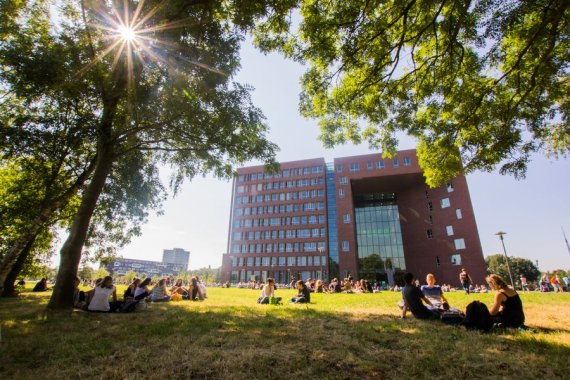Tekst Hoger Onderwijs Persbureau, Inge Schouten
On Friday, the national student network for sustainability in Dutch higher education, Studenten voor morgen (‘Students for tomorrow’), presented the SustainaBul for the seventh time. Ten universities and eight universities of applied sciences were assessed on aspects of: education, research, management and an “integrated approach”. The institutions completed a questionnaire, after which the students attributed points based on the answers and provided proof.

Wageningen University received full points (website in Dutch) for the first two components and takes back first place; last year, WUR attained silver after five consecutive years of golds. Van Hall Larenstein University of Applied Sciences is following closely, exchanging last year’s third place for second this year. The bronze is for Eindhoven University of Technology, which took the crown in 2018.
Learning
Still, the 2019 SustainaBul went to Eindhoven University of Technology. This year’s prize was not awarded to the most sustainable institution in the rankings, but to the university or university of applied sciences with the best “best practice”. At the request of the institutions, there is now more focus on sharing knowledge. ‘They have a lot of energy to learn from each other’, says Shanice Campbell of Studenten voor morgen. Eindhoven received a great deal of praise for its research into the use of iron powder as an alternative, circular fuel without CO2 emissions.
Eighteen institutions participated in this year’s ranking. More than last year, when only nine universities and four universities of applied sciences completed the questionnaire. Campbell’s explanation for this: ‘The questionnaire has been cleaned up, and institutions can now easily copy the unchanged answers from last year.’
Quality mark
Studenten voor morgen also considers changing the ranking into a quality mark that is issued once every three years. ‘This way, institutions are given more time to improve their sustainability’, Campbell says. The student network does want to continue annually assessing best practices.

 Photo: Marte Hofsteenge
Photo: Marte Hofsteenge